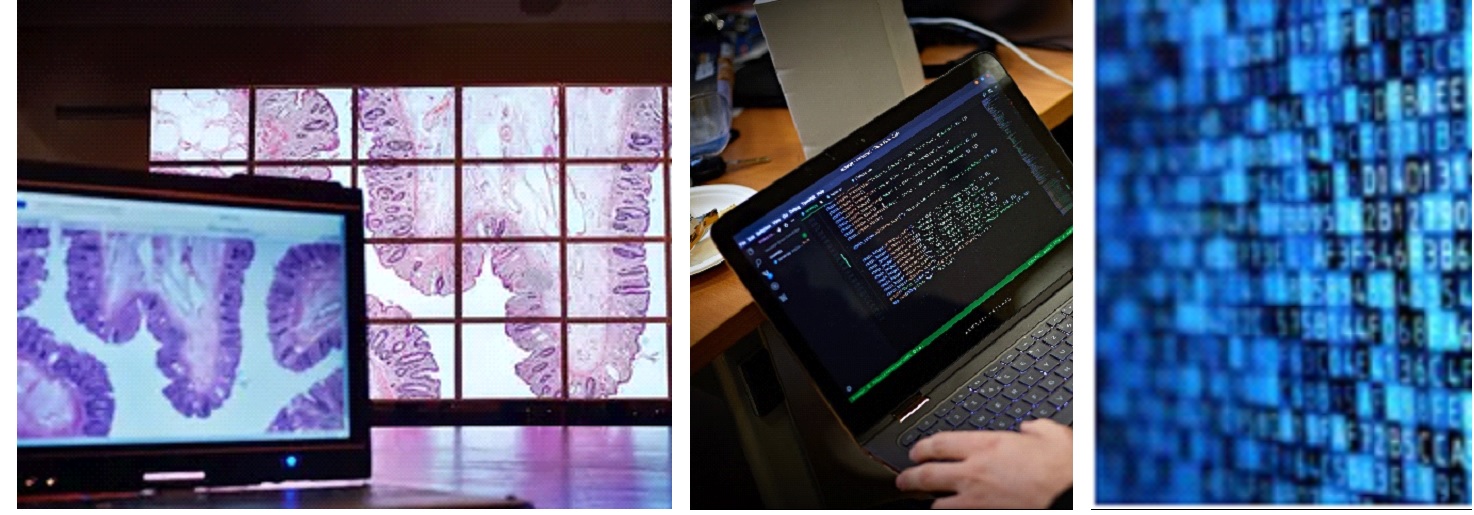About
The CDT in AI for Medical Diagnosis and Care will train 50 graduates to become highly effective researchers, team-workers, communicators and innovators in AI within the health domain, publishing at the highest international level and equipped to unlock the immense potential of AI in everyday medical practice.

The CDT aims to create:
- A sustainable and internationally outstanding Centre for research training in the application of AI to the early detection, diagnosis, treatment and care of cancer;
- A research training environment with exemplary adherence to principals of equality, diversity and inclusion, targeting a 50-50 ratio of female to male graduates drawn from a broad range of health and STEM backgrounds;
- National leadership in the development of software systems for ensuring security and privacy in the use of health-related data and compute- intensive algorithms in the cloud;
- Graduates who embody a culture of innovation and world class leadership, ensuring the UK remains at the forefront in health research, provision and commercial innovation;
- Seeding of larger research collaborations with industry, the public sector and international university partners of the CDT;
- Collaborative exploitation of new research ideas arising from the CDT in conjunction with industry partners, and technology transfer agencies.
Research themes
The research will span three themes where AI can be applied to advance cancer care and associated morbidities:
- Screening and Early Detection: exploring the use of AI in epidemiology, risk stratification and digital phenotyping, to improve screening and prevention at scale; and developing AI algorithms to process multi-faceted patient data for early detection of cancer before normal symptoms present;
- Diagnosis: exploring the use of AI to process data from pathology, radiology, wearable-sensors, patient records, and genomics, leading to faster, more precise and efficient diagnosis;
- Therapy and Care: exploring the role of AI in the development of precision medications and novel therapies that meet the complex needs of individual patients; and improving the quality of life for patients living with and beyond cancer through development of automated decision support tools informed by self-reported patient outcomes and audio-visual recordings.
 __________________
__________________
